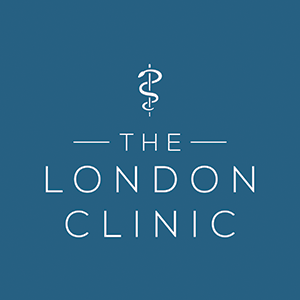What Is Mental Health and Well-Being?
Mental health is a state of emotional, psychological, and social well-being. It is a cornerstone that affects how we think, feel, and act, influencing our work, relationships, and overall happiness. According to the World Health Organization, "Mental health is a universal human right" and is vital to our overall health and well-being.
Well-being encompasses a broader range of life aspects, including emotional balance, physical health, and even social connectivity.
How Does Mental Health Affect Overall Well-Being and Daily Life?
Work Performance
Poor mental health leads to decreased productivity, lack of focus, and absenteeism.
On the flip side, a healthy mental state can enhance your performance, increase your ability to solve problems and contribute to career growth.

Relationships
Mental health plays a crucial role in how we interact with others. Emotional intelligence, which is closely tied to mental well-being, allows us to understand and manage our own emotions and those of the people around us.
This leads to healthier relationships and better social interactions.
Physical Health
There is a strong link between mental and physical health. Stress, for example, can lead to physical symptoms like headaches, high blood pressure, and sleep disorders.
Conversely, good mental health can boost your immune system and improve your physical well-being.
General Happiness
Mental health is intrinsically linked to our sense of happiness and satisfaction in life. A positive mental state can help you enjoy activities, appreciate the moments, and face challenges with resilience.
Mental health is a vital component that influences multiple areas of our lives. Prioritising mental health is not just about preventing or treating mental disorders; it is about enhancing the quality of your life in a holistic manner.
Emotional Well-Being: What to Look Out For
Emotional well-being is crucial to your overall health, but how can you tell if it is at risk? Recognising the signs early can significantly affect how you manage your emotional health.
Here are some indicators to look out for:
1. Mood Swings
2. Social Withdrawal
3. Lack of Motivation
4. Physical Symptoms (e.g., headaches, stomach issues)
5. Overwhelm and Anxiety
6. Irritability and Anger
7. Persistent Sadness or Hopelessness
By being aware of these signs, you can take proactive steps to improve your emotional well-being, an integral part of your overall health.
Physical Well-Being: More Than Just Exercise
When it comes to well-being, physical health is often the first thing that comes to mind.
However, it is more than just exercise; diet and sleep play equally important roles. Here is how these three pillars contribute to your overall well-being
Physical Activity
1. Boosts Mental Health- Exercise releases endorphins, which improve mood and mental well-being.
2. Enhances Physical Health- Regular physical activity can help prevent chronic diseases like obesity and heart disease.

Diet
1. Nutritional Balance- A balanced diet rich in nutrients can improve both physical and mental health.
2. Energy Levels- Proper nutrition provides the energy needed for daily activities and mental tasks.
Sleep
1. Mental Refreshment- Quality sleep is essential for cognitive functions and emotional balance.
2. Physical Recovery- Sleep allows the body to repair itself, contributing to physical well-being.
What Coping Mechanisms Can Help Improve My Well-Being?
Life is full of challenges, and having a set of coping mechanisms can be a game-changer for your well-being.

Here are some effective coping strategies that can help improve both your mental and physical well-being:
a) Mindfulness and Meditation- These techniques help you become aware of your thoughts and feelings, allowing you to manage stress better.
b) Physical Exercise- Not only good for your body, but exercise also releases endorphins that improve your mood.
c) Healthy Eating- Consuming a balanced diet rich in nutrients can positively impact your emotional state.
d) Social Support- Having a strong social network can provide emotional support and improve resilience.
e) Time Management- Effective time management can reduce stress and improve your mental well-being.
f) Professional Help- Sometimes, it's necessary to seek the advice of healthcare providers for coping strategies tailored to you.
g) Hobbies and Interests- Engaging in activities you enjoy can be a great way to relieve stress and improve your mood.

Coping mechanisms are essential tools for managing life's ups and downs. By adopting these strategies, you can significantly improve your overall well-being.
When Should I Consult a Professional?
Recognising when to seek professional help is crucial for effectively managing your mental health and overall well-being.
Here are some signs that it might be time to consult a healthcare provider:
1. Persistent Symptoms- If you've tried self-help strategies and they haven't worked, it might be time to seek professional advice.
2. Impact on Daily Life- When symptoms start affecting your work, relationships, or daily activities, it is a sign you need expert help.
3. Physical Symptoms- If you are experiencing physical symptoms like chronic fatigue or pain that could be linked to your mental state, consult a healthcare provider.
4. Concerns from Loved Ones- Sometimes, friends and family notice changes in your behaviour before you do. If they express concern, it may be worth seeking professional advice.
Here are some of the qualified professionals who can provide expert advice and treatment options.
1. Dr Fridah Kegocha: Specialising in cognitive behavioural therapy, Dr Kegocha offers a holistic approach to mental well-being, helping you navigate stress, anxiety, and depression.
2. Mrs Hamida Ahmed: With a focus on emotional well-being, Mrs Ahmed provides counselling services that aim to balance your emotional state and improve your overall health.
3. Dr Sheila Shavulimo Lamwenya: An expert in mental and physical health, Dr Lamwenya offers integrated care that addresses the interconnectedness of your mental and physical well-being.
Knowing when to seek professional help can significantly affect your mental health and overall well-being.
Conclusion and Next Steps
Well-being is a multi-faceted concept encompassing mental, emotional, and physical health. From recognising the signs of compromised emotional well-being to understanding the importance of diet, exercise, and sleep, each aspect plays a crucial role in your overall health.
If you found this blog post informative, we encourage you to share it with your friends and family. Your well-being is essential: the more people who understand its complexities, the better.
Start your journey to better health by consulting a professional. Book a Therapy Session Today!







